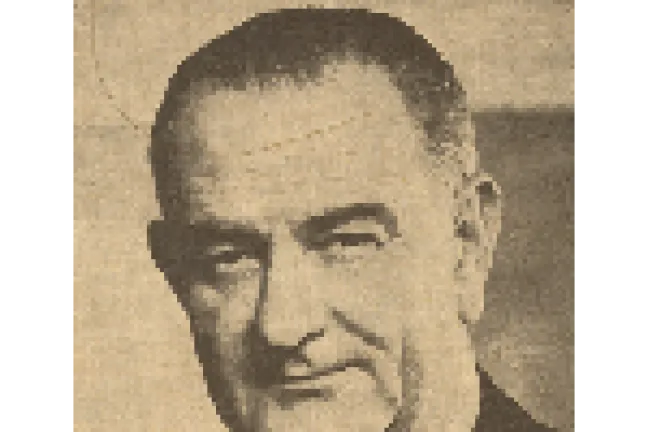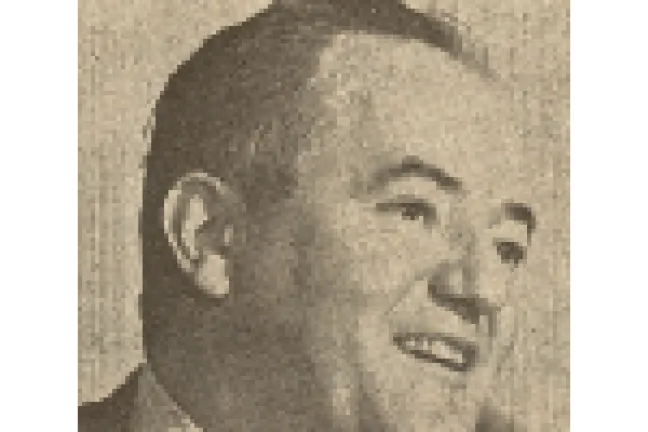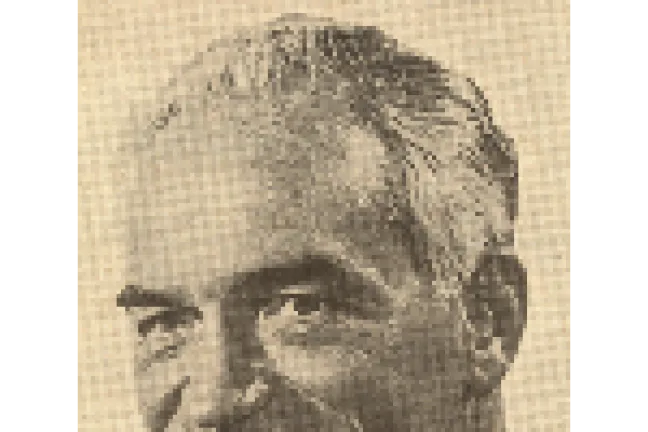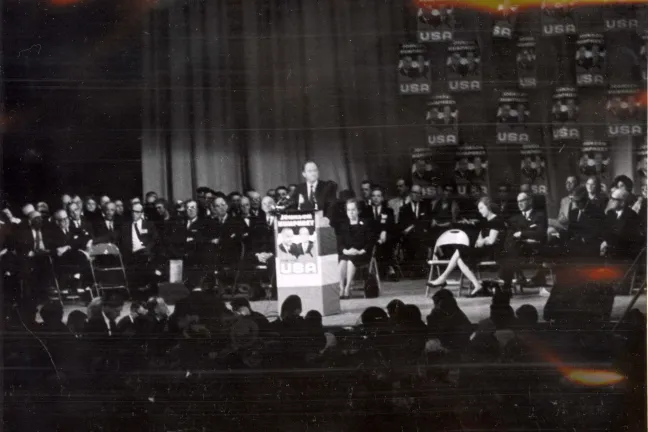Setting the Stage


Presidential incumbent Johnson was sworn into office on November 22, 1963, after the assassination of President John F. Kennedy. He served his early presidency with no vice-president before adding Humphrey to his campaign ticket for the 1964 election. Before his presidency Johnson had been Kennedy’s vice-president. He had represented Texas in both the U.S. House of Representatives (1937-1949) and then the U.S. Senate (1949-1961). He continued Kennedy’s agenda of passing the Civil Rights Act. Bu his popularity suffered with continued escalation of America's involvement in Vietnam.
Humphrey was a long time career senator before entering presidential politics. He served as the senator from Minnesota from 1949 to 1964 and again from 1971 to 1978. At the time of his October visit to Oregon he was the Senate Majority Whip. Humphrey had run for president before in 1960. After that loss, he felt that his best chance at the presidency was to first become vice-president.

Candidate photographs courtesy of Multnomah County Archives.
September 17, 1964, Lyndon B. Johnson, Portland, OR
On a rainy Thursday the 36th President of the United States touched down in Air Force One at Portland International Airport. Security was tightly coordinated. The United States Secret Service and intelligence agencies worked with uniformed Multnomah County sheriff’s officers and airport police.
Press and crowds awaited his arrival and a grandstand was ready for remarks. After he deplaned he spent some time greeting the crowds that had gathered. Then he traveled by motorcade to the Sheraton Hotel.
During his visit Johnson delivered remarks on conservation and the value of public/private cooperation to provide power. A central theme of Johnson’s campaign was making the world a better place. Although he was campaigning, it was not a political campaign speech. Perhaps he felt he didn’t need to attack his Republican opponent at that moment...
Legacy of Hope
Johnson further confirmed his anti-nuclear stance under his statement on security in the Multnomah County General Election Voter’s Pamphlet (11/3/1964). In his statement, he calls the Nuclear Test Ban Treaty a “legacy of hope.”
October 10, 1964, Barry Goldwater, Portland, OR
The Democratic candidates were not the only ones to make a trip to Oregon during this campaign year. Not long after Johnson's visit, his Republican opponent Barry Goldwater also headed to the Pacific Northwest. Goldwater had announced his run for president in January and campaigned hard through the following months. His slogan: “In Your Heart, You Know He’s Right.”
In April, before the Republican primary, the Eugene Register interviewed Goldwater. In the article, he called Oregon “a psychologically important state.” He faced stiff opposition from Henry Cabot Lodge, the U.S. ambassador to Vietnam, but also from New York Governor Nelson Rockefeller. Although Lodge was the projected winner, Rockefeller actually ended up winning the Oregon primary. As it turned out, Goldwater didn’t need Oregon’s votes. His primary win in California was enough to promise the Republican presidential nomination.
When he returned to Oregon in September, it was as the presidential nominee. His campaign buttons promoted him as “A Voice for Change” and made clever plays on his name. They even addressed charges of extremism leveled against him by Johnson and Humphrey.
The film continues on to his speech at the Portland Livestock Exposition. Crowds of protesters met him. Their signs were much different from those of his supporters at the airport. These included commentary on his opposition to the Nuclear Test Ban and his endorsement by members of the KKK. They also refer to the oft repeated claims that Goldwater supported extremism, McCarthyism, war, and poverty.
The University of Arizona’s digital repository contains scans of Goldwater’s 1964 presidential campaign speeches. Unfortunately, there is nothing for his October 10, 1964 Portland speech. That said, there are several speeches that lack a date beyond the year. In other speeches given that same day, Goldwater discussed the First Amendment and crime in America .
Friday, October 30, 1964, Hubert Humphrey, Portland, OR
During his October visit to Oregon, Humphrey made stops in both Pendleton and Portland. His Pendleton speech (delivered from the airport hangar) focused on:- motivating young voters - “Because the truth is, myyoung {sic} Americans, the truth is that there is no free country on the earth, no free country of Democratic institutions that has a poorer voting record than the United States of America," and
- appealing to the concerns of rural farmers - “I want to see our rural America have every opportunity of our metropolitan America. But I also want America, all of America, to appreciate what rural America is doing for America and for the world.”

The Politics of Radicalism
The tone of Humphrey's Portland speech appealed to the less conservative voters. It was a blistering attack on Republican candidate Barry Goldwater, expressing frustration at party politics and the fighting between Democrats and Republicans: “...We have faced a number of great crises in our history under Democratic and Republican presidents but we have never thought of them as Democratic crises or Republican crises. They have been American crises. The men who faced them and led the nation to overcome them, have not done so as party leaders, but as Presidents of the United States…”
Humphrey decried Barry Goldwater’s “right-wing extremism” and endorsements of and by groups like The John Birch Society, Communists, and the Ku Klux Klan, among others. Humphrey pointed out that he and Johnson renounced such groups in their campaign platform and discouraged their votes. “We repudiate them” is handwritten a second time on his speaking copy for emphasis.
Read Humphrey's Pendleton and Portland speeches at the Minnesota Historical Society.
